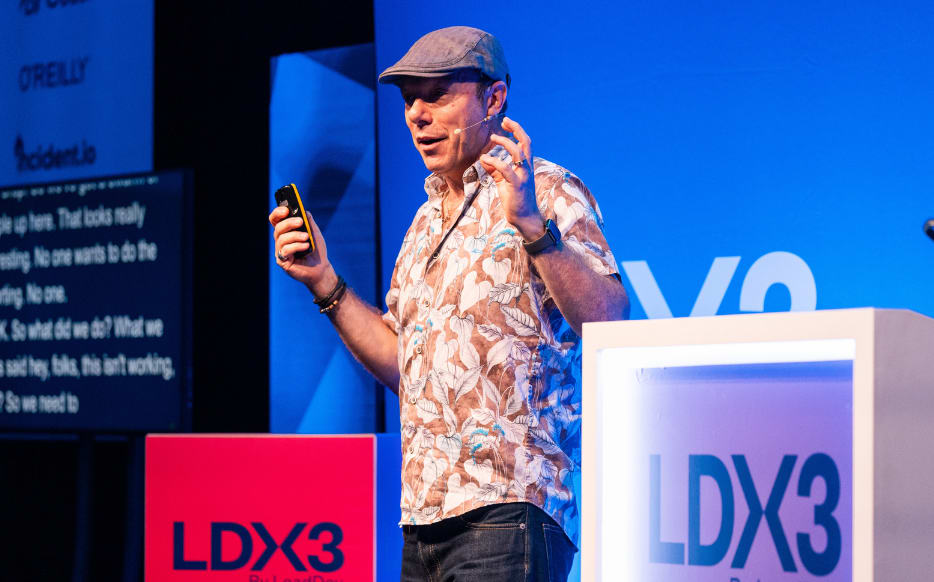
Latest
-
AI doesn’t create great developers, it amplifies them
Research from GitClear suggests the best devs benefit the most when using AI coding tools.
-
14 essential AI programming tools 2026
Here are some of the best generative AI programming tools for software developers to try today.
-
 In partnership with LaunchDarkly
In partnership with LaunchDarklyFrom code tsunami to controlled innovation: Launching software in the age of AI
How to harness the explosive speed of AI-driven development without losing control, compromising safety, or putting customer experience at risk.
Editor’s picks
Productivity isn’t always fast
It can often feel like we aren’t being productive unless we’re working at max speed. But slow productivity is here to subvert that idea.
How to speed up code reviews
Code reviews don’t have to be painful. Here’s how to embrace tools and more collaborative processes to raise the bar on your review cycle.
Maintain team performance during unexpected change
You’ll have to experience change management at least once in your career. Make sure your teams can maintain performance through it all.

London • June 2 & 3, 2026
LDX3 London agenda is live! 🎉
Essential reading

Should the daily stand-up die?
Will the real agile developers please stand up? Please stand up. Please, stand up.
On our Velocity playlist

Engineering owns velocity
In this talk, I’ll explore what engineering leaders need to do to credibly own velocity and deeply align their work with the company strategy.

Launching a Gen AI powered travel companion: A case for tiger teams
Explore Booking.com’s journey in launching a Gen AI travel companion in 3 months, powered by a tiger team approach for rapid, focused product development and innovation.

Goldilocks doesn’t need your story points or your t-shirts
Ben Murray believes there is only really one question you need to ask: is this task small enough?

How to drive pace in your team ??♀️
Alicia Collymore delivers actionable advice that’ll help you to improve your teams’ delivery and pace without a data-first approach.

Planning for success when scaling rapidly
Create goals, prioritize effectively, set expectations, and drive alignment.
More about Velocity
-
How to protect your calendar against unnecessary meetings
Becoming a manager can easily lead to meeting after meeting, here are some ways to protect your diary against meeting fatigue.
-
Managing a return to (hybrid) work
Being asked to get your team back into the office can put managers in a tricky position. Here are three ways to help you navigate the return to (hybrid) work.
-
Seven ways to build effective platform teams
Platform teams are important for establishing the foundational layers of a company’s product. How can yours be more effective?
-
How engineering leaders can promote urgency in teams
Urgency is often a skill that people really value. But what does it actually mean in practice?
-
How engineering leaders can better organize their day
How can engineering leaders hack their productivity? Here’s six ways to better organize your working day to avoid distractions and make more impact.
-
How to create more collisions in remote working environments
Being intentional about ad hoc conversations in a remote working environment can lead to more creativity and productivity.
-
The case for and against building ChatGPT into your developer workflow
It’s been touted as a revolutionary timesaver – but what about the errors? We asked developers to make the case for and against using AI tools like ChatGPT to help them code.
-
DevOps for engineering managers
DevOps promises faster, better software delivery cycles. How do you best set up your organization to reap these benefits?
Top Velocity videos
-

Keeping up momentum in remote teams
How can you increase your speed of delivery when managing remote engineering teams?
-

Overcoming security hurdles to push engineering velocity
How can you get your engineering teams to stop bypassing security requirements?
-

Making a bigger impact through collaboration as a senior individual contributor
How can working with peers lead to individual career progression?
-

Systems of efficient stability
Holly will talk through Slack’s system for managing ambient disruptions, detailing Slack’s process and the benefits it has brought at LeadDev Together.
-

Breaking down knowledge silos between engineering teams
How can we restructure the silos that are slowing us down?
-
In partnership with CircleCI
Growing your team’s superpowers with CI/CD
In this talk we’ll cover the Whys, the Whats, and the Hows of setting up a CI/CD pipeline and making it work for us as we strive to ship better software, faster.
-
Eight timezones, one cohesive team
Leading a globally distributed engineering department that spans eight different timezones is no walk in the park. It takes a lot of effort and intention to make it all work.



